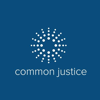In 2010, Kalief Browder was accused of stealing a backpack and jailed on Riker’s Island while awaiting trial but due to his family’s inability to post bail, Kalief remained incarcerated at Riker’s Island for nearly 3 years. During his incarceration, Kalief experienced violence not just from other incarcerated people, but from corrections staff. He was subjected to 700 days of solitary confinement, and he stated publicly how these experiences negatively impacted his mental health. Sadly, in 2015, just two years after his release, Kalief died by suicide at his mother’s home. He was only 22 years old.
Unfortunately, Kalief's story is not uncommon. This Suicide Prevention Month, we want to raise awareness about one of the most overlooked drivers of suicide in this country: incarceration. Suicide doesn’t just threaten incarcerated people, it threatens nearly everyone involved in the carceral system. We can’t allow Kalief’s life and the countless lives of so many others who have died by suicide due to trauma caused by the carceral state to have been in vain. We need to address this public health issue head-on and come up with something better. If we truly want to reduce the high rate of suicides in this country, we need to end the carceral state.
The most recent numbers from the Bureau of Justice Statistics show an alarming rise in deaths by suicide amongst incarcerated folks. From 2001 to 2019, deaths by suicide in state prisons increased by 85% but state and federal prisons are not the deadliest factions of our carceral system. Suicide is more prevalent in our nation's jails than it is in our nation’s state and federal prisons combined. In 2019 alone, 355 people died by suicide in local jails –and these are just the deaths that were reported. Suicide is often underreported and according to a recent finding by the Senate Permanent Subcommittee on Investigations, the Department of Justice undercounted prison and jail deaths by nearly 1,000 in 2021.
The carceral state doesn’t just threaten incarcerated folks with suicide. It threatens corrections officers and law enforcement officers as well. Death by suicide amongst corrections officers hit a record high in 2019 and a study published that same year by Saint Louis University found that more than half of all corrections officers reported having PTSD. Suicide is the highest cause of occupational death amongst our nation's police officers –making them more likely to die by suicide than they are to be killed in the line of duty.
At Common Justice, we believe that we can achieve safety and healing without depending on incarceration. We, as a nation, have been told for so long that more prisons and more police will keep us safe by the folks who have been put in charge, but the data is too overwhelming to ignore. If the carceral state truly worked to provide safety, it would not threaten the lives of so many people.
This suicide awareness month, we remember Kalief Browder, as well as the 5 people who committed suicide this year after being incarcerated at Rikers – Kevin Bryan, Dashawn Carter, Ricardo Cruciani, Michael Nieves and Antonio Bradley. We also remember every corrections officer and law enforcement officer who felt that the burden was too heavy to carry. It is for them that we call out this deadly system and work to provide an alternative that values humanity and healing above all else. We cannot continue to fuel this public health crisis in the name of public safety. Something else is possible.
If you’re thinking about suicide or are worried about a friend or loved one, you can call or text the National Suicide Prevention Lifeline at 988.


Submit a Comment